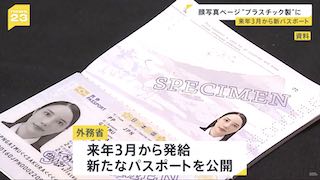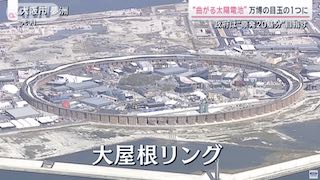May 04 (newsonjapan.com) - Anyone knowledgeable about the international gambling scene will agree that Japan is a massive market with untapped potential.
However, there is a reason this gambling potential is inaccessible.
Since 1907, gambling in Japan has been illegal under Chapter 23 of the Criminal Code. While some exceptions have been made for activities like horse racing, lotteries, and motor racing events, traditional casino games like slots and poker are entirely prohibited.
But as with any other country, prohibition doesn't necessarily mean gambling isn't happening within the country. In fact, there is a roaring black market gambling scene throughout Japan—with Tokyo having one of the biggest underground gambling markets. For those looking to avoid restrictions while gambling online, non-Gamstop casinos provide an alternative for players seeking more flexibility and access to a wide variety of games.
While these gambling rings, for the most part, are entirely invisible and unknown, the identification of some has spread light on the gambling scene in the iconic city over recent years. For those looking to enjoy gambling anytime and anywhere, try casinos without Swedish license can be an attractive option.
So, let's delve into Tokyo's underground casinos and the people that frequent them.
They are located in familiar places.
Gamblers in many countries worldwide are spoilt by the sprawling casino complexes offered by gambling institutions. From the Las Vegas Strip to the towering spires in Macau, casinos ensure they are lavish places to visit to make people feel at home (and willing to spend money).
Considering casinos are illegal in the country, the same cannot be said about Tokyo and Japan. Instead of the large game floors and glittering lights of endless slots, gambling usually occurs in everyday places where nobody would suspect anything nefarious.
In recent years, gambling rings have been uncovered in office blocks, at the back of nightclubs, and in private homes. These locations show that gambling rings are careful to ensure they are located where the law won't think to look. However, law enforcement has a proven track record of tracking them down.
They take security seriously.
As you would expect from anything where people are doing things they shouldn't be, they don't want to get caught. As such, many gambling operations in Tokyo opt to have security to ward off anyone they don't wish to find or alert them should any authorities come knocking.
One of the most famous cases is an illegal gambling operation that hired former professional fighter Koni Okuno as a bodyguard. Estimated to have been paid 11 million yen (approximately $105,900) for the seven months he worked there, he claimed he did not know about the illegal gambling being conducted.
However, Tokyo Metropolitan Police proceeded with his arrest after their investigation led to the arrest of 12 people connected to the operation. Among these was Chizuka Yamamoto—a well-known member of Japan's organized crime syndicates.
Most illegal gambling is part of a greater organized gambling syndicate.
The most significant organized crime syndicate in Japan is the Yamaguchi-Gumi Yakuza. Yakuza (or gokudō) is the local term for any crime group. Yamaguchi-Gumi, sometimes referred to as the Japanese mob, is also one of the biggest crime syndicates in the world—having more than 20,000 members.
Aside from raking in billions yearly from activities like extortion, gambling, drug, arms, and sex trafficking, and insider trading, the group is also one of the most prominent figures in illegal gambling activities.
The organization has been linked to numerous gambling establishments, from underground baccarat rooms to illegal poker tables. And with the growing interest in poker in the country, they appear to be behind more and more illegal operations involving poker games.
Amongst these was an illegal poker room that officials identified in November 2021. After raiding the room, authorities arrested 14 suspects and 10 customers in the room at the time of the raid.
The operation was said to have begun after the WSOP (World Series of Poker) hosted two Japanese residents the same year. Both Kazuki Ikeuchi and Motoyoshi Okamura, who competed in the tournament, came home with a coveted WSOP bracelet—adding further ignition to the game's growing popularity in the country.
Only certain people can join the games, which don't come cheap.
With so many illegal gambling operations in Tokyo, it may seem a wonder that they aren't discovered more often. However, these rooms take secrecy very seriously and ensure they don't advertise themselves in any way.
Instead, clientele find their way to the rooms via a word-of-mouth system. Trustworthy players are informed about a new room via secure channels. Anyone whom with they deem fit to share the information is automatically seen as trustworthy.
As the news spreads amongst those looking to gamble illegally, the gambling operation grows in size and customers. However, entry into these operations doesn't come cheap.
The owners of these gambling rings charge players hefty fees to participate to prove they are serious and won't spread the news to anyone who may seek to close such operations down.
One of the most common fees for illegal poker rooms is 5% of the total value of all hands played. Using this model is how these criminal syndicates rake in incredible profits in a short time.
Conclusion
With the official approval, Japan's first casino resort is expected to open in late 2029, there is hope that these venues will curb the illegal gambling market and end the gambling syndicates that currently have their grip on Tokyo and greater Japan.
That said, many Yakuza have already openly and blatantly stated they will find a way to infiltrate these casinos and ensure they still profit from gambling activities.
While there is hope the authorities will be able to end this before they get a foothold, what the future of gambling in the country will be remains to be seen. Until then, Tokyo will remain firmly in the grasp of a vast network of illegal gambling rings.















